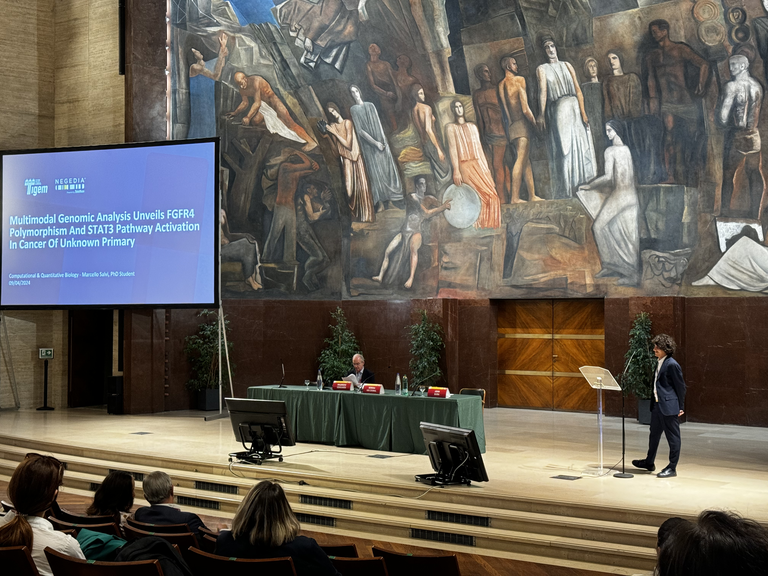Advancements in Human Genomics: Insights from the Rome Meeting with Notable Contributions from TIGEM Researchers

The recent meeting in Rome centered on the integration of genomic methodologies into clinical practice, with a particular emphasis on their application in cancer treatment and genetic disease management. This event not only highlighted the ongoing advancements in genomic technologies but also showcased significant contributions from researchers at the Telethon Institute of Genetics and Medicine (TIGEM).
Pioneering Genomic Tools for Clinical Applications
One of the key themes discussed was the enhancement of genomic tools in clinical settings, aiming to transform patient care with more personalized and precise medical solutions. The development and integration of such tools are crucial for diagnosing and treating complex diseases more effectively.
Role of GA4GH in Enhancing Genomic Networks
The meeting spotlighted the Global Alliance for Genomics and Health (GA4GH), which is diligently working to establish a comprehensive network of genomic resources. This initiative seeks to standardize genomic data sharing and tool utilization across the globe, making it easier for clinicians and researchers to access and apply these resources in a clinical context.
Contributions from TIGEM Researchers
Significant contributions from TIGEM researchers enriched the discussions:
- Vincenzo Nigro played a pivotal role as a chair during one of the sessions, facilitating discussions and leading the dialogue on new genomic integrations in medical practice.
- Davide Cacchiarelli introduced the Telethon spin-off Negedia, an innovative venture focused on enhancing genomic data utility in therapeutic settings. His presentation detailed the objectives and expected impact of Negedia in the field of genomics.
- Lorenzo Vaccaro, Antonio Grimaldi and Marcello Salvi also contributed to the breadth of knowledge shared at the meeting, bringing insights from their respective research areas within TIGEM.
Innovations in Genomic Databases and Techniques
Alar Rubin’s talk on the development of MaveDB was a highlight, discussing this new database as a repository for data from high-throughput mutagenesis experiments. This tool is anticipated to become a cornerstone for patient diagnosis once it is fully operational.
New genomic techniques were also discussed, such as the ability to profile the epigenome at the level of a single molecule, providing unprecedented precision in epigenetic research.
Artificial Intelligence in Genomics
The application of artificial intelligence (AI) in genomic medicine was a notable topic, with presentations on its use in patient monitoring and variant assessment. AI is increasingly recognized for its potential to refine the accuracy of genomic analyses and support clinical decision-making.
Conclusion
The Rome meeting on human genomics provided a vital forum for sharing advancements and encouraging collaborative efforts in genomic sciences. TIGEM researchers, along with other participants, highlighted the transformative potential of genomic technologies in research and healthcare, pushing forward the boundaries of what can be achieved in medical science.
